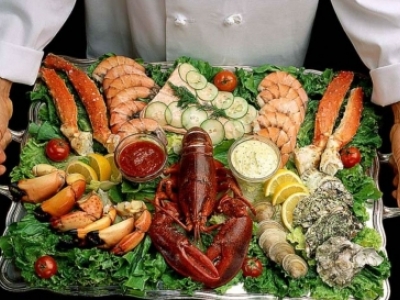Don't miss
Other articles
Almost everyone who has ever been to a cafe, restaurant, canteen at work or gastronomy was tempted by the appetizing look of steaming barbecue, lasagna, ice cream, and had to barely make a choice in favor of a particular dish.
What is so amazing about these blue - green algae and why is it firmly usurped the place of one of the most useful foods? DiningSmart team will gladly tell you all about it.
The truth about the most popular sauce in the world – DiningSmart will tell you everything about mayonnaise in this article!
The daily requirement for vitamins is calculated in milli- or micrograms, butits contribution to our physical and mental well-being is enormous.
How to store products in the refrigerator?

To avoid the infection by bacteria contaminating food, you must:
- Wash your hands, rinse fruits and vegetables, clean the surfaces that contact with food.
- Do not drink raw (unpasteurized) milk. Raw meat, poultry and eggs must necessarily be subjected to heat treatment.
- Store the perishable products in the refrigerator or freezer. Defrost them properly.
- Products and dishes of different types, raw and ready-to-eat/cooked foods should be stored separately from each other. The proper placement of food on different refrigerator levels, each with its own temperature mode(from -18° С to +7° С in the freezer), - is one of the basic principles of food storage in the fridge. The cooked dishes should be stored in special containers for food storage or enamel pot with a tight-fitting lid.
- Always keep your refrigerator clean. All products must be packed tightly and neatly. Read carefully the expiration date on the package and make sure that the old products are not staling on the shelves. It is recommended to remove all the food from the fridge and wash up each shelf by the dishwashing liquid at least once a month.
| The freezer helps to keep meat, poultry and fish fresh for a long period of time. They should be packed in separate plastic bags. | The warmest place in the fridge is its door. The perishable products, as well as milk and cheeses should not be stored in the fridge door. The storage life of eggs in the refrigerator is no more than a week. |
| The closest zone to the freezer is the coldest one. This can be explained by the fact that the temperature there is about 0°C. You can store fresh meat and fish in it. If you are going to cook them within the next two days, then you should store them in an enamel pot, without wrapping them in the bag. Additionally, sausages, cream-filled pastries and eggs are also stored in that zone. | |
|
All dairy and other products are usually stored on the middle shelves at 7-8 ° C.
The closed cans should be stored in a closet, whereas the open ones should necessarily be placed in glass containers, otherwise there is a risk of rapid bacterial contamination. |
|
| Fruits and vegetables are to be kept in special drawers. You’d better use a special anti-bacterial mat which provides an additional ventilation for the product safety through the layers of air that it creates. Storing food in a wet form might contribute to the growth and survival of bacteria. If you are not going to use the products right away, they should be dried and packed in order to be further stored in the refrigerator. Fruits and vegetables should be kept in different containers as they may accelerate each other’s rot. |
Copying and placement of this article without reference to this website is prohibited.
Other articles
Almost everyone who has ever been to a cafe, restaurant, canteen at work or gastronomy was tempted by the appetizing look of steaming barbecue, lasagna, ice cream, and had to barely make a choice in favor of a particular dish.
What is so amazing about these blue - green algae and why is it firmly usurped the place of one of the most useful foods? DiningSmart team will gladly tell you all about it.
The truth about the most popular sauce in the world – DiningSmart will tell you everything about mayonnaise in this article!
The daily requirement for vitamins is calculated in milli- or micrograms, butits contribution to our physical and mental well-being is enormous.









